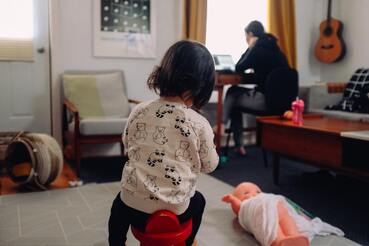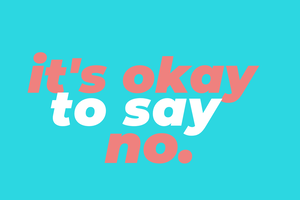|
0 Comments
 A recent study about baby infant formula not meeting the health requirements the companies claimed they provided shows that many normal aspects of parenting are being pathologised, viewed as or seeming to be somehow medically or psychologically abnormal. This leads parents, in particular mothers, to feel guilty that they're not doing well enough, that they're failing, that they are falling short.  Do you very find yourself getting caught up in comparing yourself to your friends’/your colleagues' beautiful holiday, great job, well-behaved children, bigger, cleaner, immaculate house, ability to juggle so many plates with ease etc etc? Well, you are not alone. We all do it! Research has shown that we naturally compare our own performance to that of others. We adjust how we see ourselves based on whether we see ourselves in cooperation (which makes us feel good) with others or in competition (which makes us feel bad). Image by Kseniia Samoylenko on Unsplash
 ‘What kind of mother feels grief and sadness after having a child? This is what, Helen, a therapy and coaching client of mine, said to me in our sessions a few months after becoming a mother. Helen was about to return to work after a few months on maternity leave. She was a successful training and development senior manager used to running a large team. She had dedicated herself to her career prior to motherhood. When she became a mother, things changed, but not how she had expected.
 You wake up in the morning and straight away, your mind goes into overdrive: ‘I can’t believe what she said to me!, ‘she must think I am a really bad mum’, ‘how dare she criticise me;, ‘I should be a better mum’ and on it goes. You feel angry at this woman who said something to you and the more you replay what she said in your mind, the angrier you get. The anger gets reignited every time you think about it and when one of your children ask you for something, you snap at them. This, you are sure, confirms that you are a bad mum. And then the loop grows even bigger. A common theme in my clinical practice is the extent to which mothers are afraid to express what a shock motherhood has been, and might still be years on, to them. Amongst the things they fear expressing are: the fact that they struggle with motherhood (mothers are supposed to enjoy it), that they feel competing emotions about it (mothers are supposed to feel happy and joyful), the limitations that it places on their lives, time, freedom, careers (mothers are supposed to sacrifice themselves, their needs, dreams and careers to their children), the impact it has on their sense of self (mothers are supposed to find motherhood easy and not be changed by it) and their place in the world (mothers are supposed to put their children first at all times at and do so with a smile on their faces), the extent to which it creates social isolation and loneliness ()mothers are supposed to feel entirely fulfilled by motherhood and need nothing or nobody outside motherhood) and how it limits their options to define who they want to be (mothers are supposed to be satisfied in their role as mother and not want anything more for themselves). Women have internalised the rigid ideal mother stereotype so deeply that they are scared to express any dissatisfaction with motherhood (beyond being sleep-deprived and overly busy). They internalise this conflict, which can fuel mental overload and mental health issues.
None of these issues take place in a vacuum. They occur in a social and cultural context that makes it very difficult for women/mothers to express openly that motherhood is a struggle and to recognise that the struggle is real and that they are not alone in experiencing it. Awareness is always the first step to change. Awareness involves an understanding of the wider social and cultural context within which the role and rules of motherhood operate (see blog post on motherhood as identity shift/crisis). It also involves an understanding of the ways in which struggles such as these show up as anxiety, stress, self doubt, anger and how these operate (see blog post on understanding anxiety, for starters).
As stress and anxiety are physical and mental processes, you may find the following strategies helpful to minimise stress and anxiety in your daily life.
1. Be aware that anxiety is a learned behaviour When you feel any of those old unwanted sensations, look around and reassure yourself that there are no dangers and take your mind to somewhere relaxing. This recording will do that. The more you do this, the easier it will be for your mind to switch to calmer thoughts and for unpleasant sensations in the body to ease. 2. Move the body/Exercise for 30 minutes per day - PREFERABLY outside It has been proven that exercise is an effective strategy for overcoming stress and anxiety. It also has a significant effect on your wellbeing and happiness. Exercise needn't be the gym. A walk, a dance in the loungeroom, active gardening etc can be hugely beneficial forms of exercise/movement. 3. Get plenty of sleep Good quality sleep is essential for a healthy mind and body. Insufficient sleep can have a detrimental effect on your mood. Sleep deprivation increases anxiety and stress levels. It makes it more difficult to think clearly and rationally and can increase negative thinking. 4. Eat healthy meals - choose nutritious foods, and limit your sugar, alcohol and caffeine intake As stress and anxiety are physiological, stimulants such as sugar, coffee, alcohol etc may have a significant impact on stress levels and sleep quality. 5. Focus on the good, joyful stuff in your life Building a set of neural pathways so that your brain begins to default to feelings of joy/calm and relaxation comes from training your mind to go to nice places and good feelings. It requires repeated practice. As you repeatedly train your brain to focus on good feelings (through this recording, for example), it will notice them more and more often. So whenever you notice yourself feeling particularly good, take a moment to acknowledge how good it feels and simply say out loud: “I feel good!”. 6. Shift your focus Shift your focus onto something else for a few moments. It can be a good way to fend off any sudden symptoms of anxiety. It can allow you to step back from the situation. Practise any one of the techniques below for a few minutes and you will find that sudden symptoms will dissipate. Select the technique you prefer:
7. Listen to a relaxation recording such as that on this website. It is designed to help your mind and body calm down and will retrain your nervous system to slow down. |
AuthorHi I'm Dr Fabienne and I believe in the capacity we all have to change our circumstances, given the right help, tools and inspiration! Archives
May 2024
Categories |










 RSS Feed
RSS Feed